
Supercomputing architecture is undergoing a transformative shift globally, driven by the need for unprecedented computational power. High performance compute (HPC) machines stand out for their ability to perform complex calculations at speeds far beyond conventional computers. Nations race to harness these capabilities for advancements in weather forecasting, drug discovery, artificial intelligence, and more. With significant strides in indigenous motherboard design and local manufacturing, coupled with ambitious initiatives like the National Supercomputer Mission, India’s journey in supercomputing is the one to watch.
High performance compute (HPC) vs general compute
By definition, an HPC machine must be able to do 10x more computations than the fastest laptop or desktop available at that time.
An HPC machine must process multiple operations in parallel to achieve high computational capacity. A general-purpose computer, like a laptop, has much lesser parallelism compared to an HPC machine. The silicon chip used in general-purpose machine is designed with very strict thermal constraints (that a person can withstand) and power dissipation constraints (with which the battery must last longer).
Whereas for an HPC, although the thermal and power constraints are targeted, however, the biggest objective is getting maximum performance. The performance capability is measured in terms of FLOPS (floating point operations per second).
A silicon designed for high performance compute must be able to perform multiple operations in parallel to achieve higher number of compute operations in a second. The hardware architecture and compiler play a critical role in achieving such parallel processing.
The applications for HPC are much different than a general-purpose compute. An HPC application will typically have workloads as a single operation/ calculation on multiple datapoints.
Bu hikaye Electronics For You dergisinin August 2024 sayısından alınmıştır.
Start your 7-day Magzter GOLD free trial to access thousands of curated premium stories, and 9,000+ magazines and newspapers.
Already a subscriber ? Giriş Yap
Bu hikaye Electronics For You dergisinin August 2024 sayısından alınmıştır.
Start your 7-day Magzter GOLD free trial to access thousands of curated premium stories, and 9,000+ magazines and newspapers.
Already a subscriber? Giriş Yap
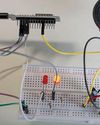
ESP32-Powered AUDIO-VISUAL SIREN
This sound alternator is designed to simulate the effects of a police siren, combining sound and light to create a dynamic audio-visual experience.
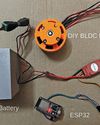
BLDC MOTOR With Web-Based Speed Control Using ESP32
Integrating wireless control into brushless direct current (BLDC) motor systems opens up exciting possibilities for applications such as remote-controlled cars, robots, and other innovative systems.
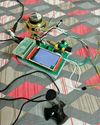
Pi Zero Portable BILINGUAL TRANSLATOR
This system is designed as a bilingual translator, leveraging the gTTS library to support multiple Indian languages, including English (en), Bengali (bn), Gujarati (gu), Hindi (hi), Kannada (kn), Malayalam (ml), Marathi (mr), Tamil (ta), Telugu (te), and Urdu (ur).
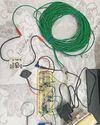
Op-Amp-Based VEHICLE THEFT DETECTOR
A simple, low-cost device can effectively alert homeowners or occupants if a parked vehicle is moved or tampered with.
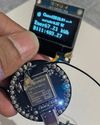
loT SMART METER With Dashboard
Energy meters in homes track electricity usage, enabling accurate billing by governments and providers.

Choose The Right Cloud Platform For Implementing loT PROTOCOLS
Working with loT protocols like MQTT, AMQP, and CoAP on cloud platforms is essential for developing scalable and efficient lol applications. The choice of the programming platform will depend on factors like project requirements, existing skills, and target devices. Leveraging the appropriate libraries and cloud services can enable seamless integration of lol devices with cloud-based applications.

Why TMR SENSORS Lead Next-Generation Design
TMR sensors are gaining traction in industries needing precision and power efficiency. What makes them the go-to choice for modern designs?
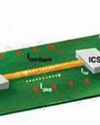
DESIGNING PCBs For EMI Management
Electromagnetic interference can derail your PCB’s performance. EMI management is not just a technical necessity but a hallmark of exceptional PCB design.

CUTTING COSTS, NOT CORNERS: Building Large Scale Applications With Open Source Software
Here are some strategies and best practices for leveraging open source to create enterprise-grade web and mobile applications without sacrificing quality or functionality.

"We Are One Of India's Very Few State Bodies To Manage The Entire Lifecycle Of The Electronics EcosystemFrom Approvals To Subsidies."
What is Gujarat State Electronics Mission GSEM), and how is it attracting major investments in electronics manufacturing, particularly semiconductor manufacturing, to Gujarat? To delve deeper, Electronics For You’s Nijhum Rudra spoke with Manish Gurwani, the head of GSEM. Here is what he revealed...